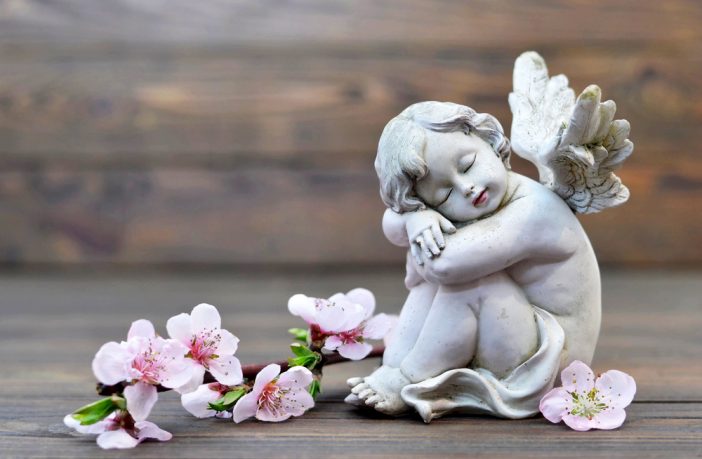Dr Kerry Jones is a Lecturer in End of Life Care and researches bereavement across the whole life span. In this article, she debunks some common misconceptions and outlines ways to support parents who are going through this loss.
“ It doesn’t matter how many babies we do or don’t have, you can’t ever replace the baby you lost. There is always something missing, my family isn’t complete, it’s never going to be complete because she is not here. It’s how you feel….a complete and utter emptiness and that is how I felt after my baby died. That hole has been left here now, there is a permanent gap and a whole part of my life that is missing.” Kaley, mother of baby girl, Lucy who died ten days after she was born at 37 weeks
This quote is a by a mother who participated in research I conducted about 28 bereaved parent’s experiences of stillbirth and neonatal death. In a research interview, the impact of the death of her first baby, a girl, is moving and poignant. Despite having had children since this tragic event, she remains deeply affected by the death of her little girl as she shows me a picture of her holding her daughter as she was dying 10 days after she had been born at 37 weeks. During her pregnancy there had been every indication that her baby was healthy.
This is not a ‘rare tragedy’
Sadly, this is an experience shared by many mother’s, father’s, siblings and grandparents in the UK. So no, it is not a rare tragedy. Around 15 babies die each day during pregnancy, during the birth or soon after. The latest figures available from the Office for National Statistics about such events show that in the UK, in 2015, one in every 227 births was a stillbirth. Around a third of stillbirths occur after the 37th week of pregnancy. In the same year, one in every 370 babies died in the first four weeks of life, in the neo-natal period. While the rates have declined in the last decade due to advances in medical knowledge and clinical care, the UK is ranked 33rd worst out of 35 economically comparable countries according to the The Lancet’s Stillbirth series published in 2011.
An unexpected event
According to the Stillbirth and Neonatal Death Society (SANDS) many people think that stillbirth occurs as a result of some genetic or developmental problem. However, this occurs in fewer than one in ten stillborn babies. For as many as 6 in 10 stillborn babies, the cause of death is unknown. Not knowing the cause of death may mean that mother’s feel guilt if they feel that they ‘didn’t do enough’, while in fact, they experienced a trouble free pregnancy.
What many bereaved parents have told me through research is that the death of their baby was unexpected and came as a huge shock. Many parents described such deaths as belonging to Dickensian times and not the 21st century.
Several parents questioned the way the death impacted on them including questioning their identity as a parent. As one mother said:
“ I was a mother and I didn’t have a baby, it was like my identity had been taken away.” Tanya, mother of baby boy, Adam, stillborn at 38 weeks.
One father also spoke about the way in which he was impacted by the death of his daughter :
“ It was absolutely devastating. I have never been suicidal but it’s the closest I can imagine being. If we had a child already that would be a reason to live but when you are looking over that abyss of not having a child it really becomes a horrendous abyss.” Jake, father of baby girl, Trudy, died two hours after she was born at 35 weeks
Indeed, parents can be affected in many ways by the death of their child and the level of support they receive in hospital is critically important.
Hospital support is important, but inconsistent
Around 2000 babies a year are born in an average sized maternity unit, but every day some families will return home without a baby to hold, nurture and cherish. The level and type of care and support parents receive is incredibly important.
Yet, what is known about these experiences is that the support grieving parents receive in hospital is inconsistent. Some parents report sensitive and empathetic support by midwives while others reflect on more negative experiences. Similarly, the Bereavement Care Report 2010 by SANDS, points out that the care that parents receive varies even within the same hospital trust.
The effect of this variation is that parents will reflect on these more negative experiences with anger, dismay and sadness, and for some years after the baby has died.
Parents who report good care however, really value midwives and staff who encourage them to spend time with their baby, to wash and dress them and to take photos as well as handprints and footprints. Parents also really valued times when midwives and staff said their baby’s name and spoke with tenderness about the baby. These practices were ways of creating precious memories and those which could be shared with others such as family and friends.
Support from family and friends
While there are practices that serve to memorialise a baby, not everyone will want to share in the memories that parents create.
Family and friends may struggle to support grieving families because they don’t know what to say or do in response to parent’s distress. But talking about the baby, and being able to say their baby’s name can be really important for grieving parents.
As one bereaved mother reflected in my research:
“I have tried to discuss it (death of a baby) with my mother and she changes the subject every single time. She finds it very uncomfortable so I just stopped bringing it up. I would have thought that the one thing, the one person and the one place where I could get the most support and it ended up being the least supportive. I found more support through a group and a company of strangers than I did from my own family.” Joan, mother of baby boy, Sam, who was stillborn at 36 weeks.
Of course, family members such as siblings and grandparents are grieving too, and everyone has their own unique way of experiencing bereavement. Some grandparents suffer as they try to cope with their own grief of the death of a grandchild at the same time as trying to support their grieving child. Indeed, very little is known or published about the impact of stillbirth or neonatal death on grandparent’s grief and research is needed on this issue.
“You can always have another one”
As parents try and make sense of their loss, they also have to cope with feelings around being a ‘parent who has no baby’ while others do not acknowledge the overwhelming grief that parents can feel. Indeed, several mothers and fathers have spoken to me about some of the ways other people expect them to ‘get over their loss’ and to ‘move on’ or even offer sentiments such as ‘you can always have another one.’ Understandably many parents, especially mothers, become incensed and upset by these comments and about other people’s expectations of them.
When bereaved parents are expecting a subsequent child, they can feel tremendously anxious . One expectant mother who took part in my research about bereaved parents struggled during her fourth pregnancy following the death of her third child, a son:
“At twenty weeks during the pregnancy, it was the hardest time because for every tweak, I was just terrified. I was trying to deny it was happening, I didn’t want to get too attached. It wasn’t until I actually had the scan, I thought, right it is happening. But I still didn’t change Tommy’s bedroom (baby who died) ready for when the baby would be born, I couldn’t bear to take it all apart, it felt like it was a part of him.” Lena, mother of baby boy who died 2 days after he was born at 38 weeks.
Much research has focused on the experiences of women following stillbirth and neonatal death. Yet fathers feel too, as this narrative account from my research suggests about a father’s perspective of a subsequent pregnancy:
“My partner was incredibly keen to get pregnant as soon as possible. For me it seemed like the last thing I wanted to do. The idea of doing it having had that experience was like Oh my God you must be insane! You want to go back and (have) that experience again you know what I mean? Even though rationally everything said it would be fine, that wasn’t even the point. The point for me was that pregnancy and whatever could happen afterwards was just so utterly terrifying.” Karl, father of baby girl, Libbie.”
Parents anxieties don’t end with a subsequent pregnancy – there is the experience of a subsequent birth, as two bereaved mothers recall:
“One of my fears was that I was going to be left in a room and the heart beat would change and no-one would know and the baby would be breech and nobody would know and it would be too late. One of the things that was important is that I didn’t want to be put in a room with a load of other women. I knew it would be a hard and emotional time and bring back lots of memories. I wanted that time alone and not to be embarrassed crying in front of other women with me.” Anna, mother of baby girl Abi, born at 35 weeks, who lived for 5 hours.
“The thing I remember is in the bed opposite me there was obviously a lady who’d had a little boy and I had lost a little boy. All I can remember now is the grandmother saying you’ve given me a lovely grandson and that just did it for me. I knew I had a healthy little girl, but I had to get out of there.” Mother of baby boy Jim, stillborn at 36 weeks.
There is much more that can be done to support bereaved parents when their baby has died including during subsequent pregnancies and births. Yet, there are also key moments when parents will be reminded of their loss and this can last a lifetime.
Birthdays, anniversaries, Christmas Day, Mother’s day, Father’s day, a first day at school are all significant events which can bring about much pain for parents after their baby has died. There are many ways to remember and commemorate parents’ babies at these times whether it is by planting a tree, attending a memorial service put on by local support groups or hospitals, or create a virtual memory online. Some parents have created a family day out and brought back a souvenir from a trip on baby’s birthday.
Yet, what stands out from listening to parents talk about their loss, is for them to have the opportunity talk about and to remember their baby.
This is why it is important to enable parents to find a way of being supported and to remember their baby in a way which feels right. There are a number of organisations which can help bereaved parents. These include but are not limited to SANDS who have worked for many years not only to raise awareness about the occurrence of stillbirth and neonatal death and to fund research on prevention, but also to find ways to support bereaved parents through their support group.
If you have been affected by a stillbirth or neonatal death or are seeking support, you can contact these organisations
The Stillbirth and Neonatal Death Society
Call: 0808 164 3332
Email: helpline@sands.org.uk
https://www.sands.org.uk/support
The Samaritans
Call free 24 hour helpline: 116 123 (UK)
116 123 (ROI)
Email: jo@samaritans.co.uk (UK)
jo@samaritans.co.ie (Republic of Ireland)
The Compassionate Friends
Call: 0345 123 2304
Email: help@tecf.org.uk
Kerry is a Lecturer in End of Life Care. She has conducted research and teaches on death, dying and bereavement and end of life care across the life span. Kerry also presents her findings from research and speaks on the subject of grief and bereavement at national and international conferences. She was the convener for the Open University Death and Dying Research Group conference at the Open University in March, 2018 and was the Academic Consultant for a BBC 2 ‘A Time to Live’ aired on May 2017, documentary which was nominated for an award at the South Bank in London. It generated over 2 million views and visits to Open Learn where the documentary is available.



